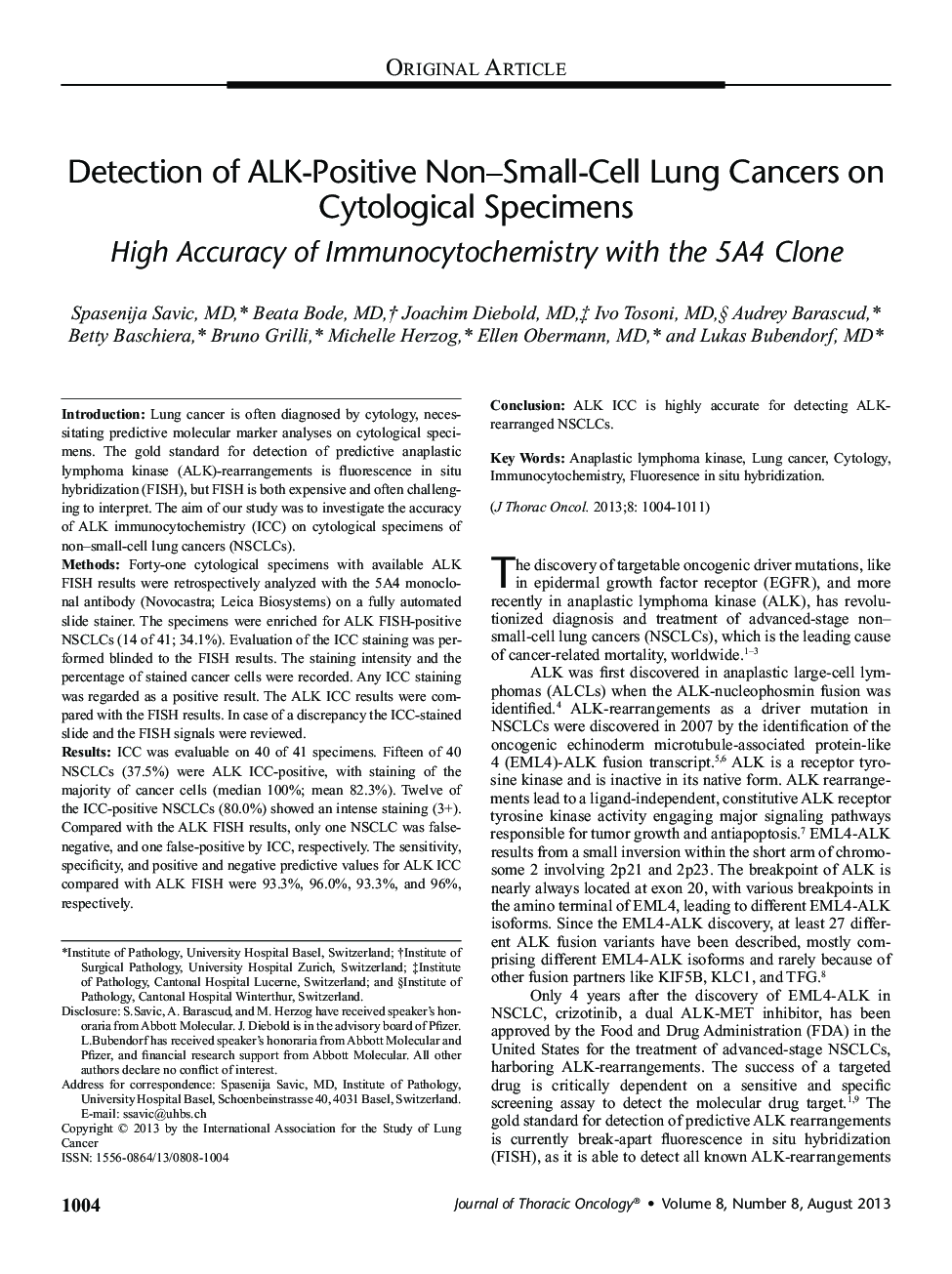| Article ID | Journal | Published Year | Pages | File Type |
|---|---|---|---|---|
| 3990104 | Journal of Thoracic Oncology | 2013 | 8 Pages |
Introduction:Lung cancer is often diagnosed by cytology, necessitating predictive molecular marker analyses on cytological specimens. The gold standard for detection of predictive anaplastic lymphoma kinase (ALK)-rearrangements is fluorescence in situ hybridization (FISH), but FISH is both expensive and often challenging to interpret. The aim of our study was to investigate the accuracy of ALK immunocytochemistry (ICC) on cytological specimens of non–small-cell lung cancers (NSCLCs).Methods:Forty-one cytological specimens with available ALK FISH results were retrospectively analyzed with the 5A4 monoclonal antibody (Novocastra; Leica Biosystems) on a fully automated slide stainer. The specimens were enriched for ALK FISH-positive NSCLCs (14 of 41; 34.1%). Evaluation of the ICC staining was performed blinded to the FISH results. The staining intensity and the percentage of stained cancer cells were recorded. Any ICC staining was regarded as a positive result. The ALK ICC results were compared with the FISH results. In case of a discrepancy the ICC-stained slide and the FISH signals were reviewed.Results:ICC was evaluable on 40 of 41 specimens. Fifteen of 40 NSCLCs (37.5%) were ALK ICC-positive, with staining of the majority of cancer cells (median 100%; mean 82.3%). Twelve of the ICC-positive NSCLCs (80.0%) showed an intense staining (3+). Compared with the ALK FISH results, only one NSCLC was false-negative, and one false-positive by ICC, respectively. The sensitivity, specificity, and positive and negative predictive values for ALK ICC compared with ALK FISH were 93.3%, 96.0%, 93.3%, and 96%, respectively.Conclusion:ALK ICC is highly accurate for detecting ALK-rearranged NSCLCs.
